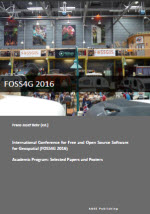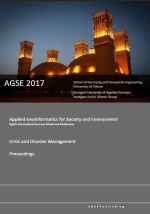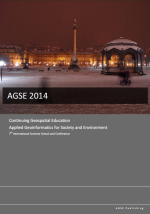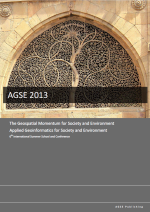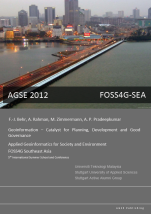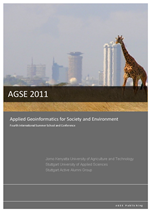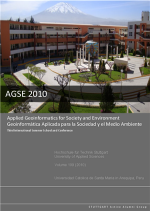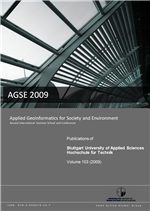An interdisciplinary, international forum for sharing knowledge about the application of Geoinformatics with focus on application and on developing countries.
| Applied Disaster Research 2011: Disaster, Risk and Vulnerability Conference 2011 | |
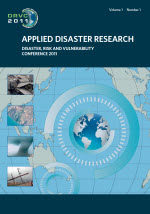
|
Proceedings Applied Disaster Research 2011: Disaster, Risk and Vulnerability Conference 2011, Mahatma Ghandi University, Kottayam, Keral, India, March 12 - 14, 2011 (sold out). The School of Environmental Sciences, Mahatma Gandhi University, Kerala, India was organizing a Disaster Management Conference entitled Disaster, Risk and Vulnerability Conference 2011 (DRVC 2011) from 12–14, March 2011, in association with the State Disaster Management Authority and the Indian Medical Association – Kerala Disaster Management Cell. The conference brought together specialists, practitioners, academics, students and the public to a common platform. Discussions on disaster management, risk and vulnerability reduction can lead to increased awareness of disasters and its various hues, strategies for resiliency, and newer technologies for disaster management. This is an important component of the UN Millennium Development Goals (MDGs) which state that "Disaster Risk Reduction and increasing resilience to all types of natural hazards in developing countries can have multiplier effects and accelerate achievement of the MDGs." |


